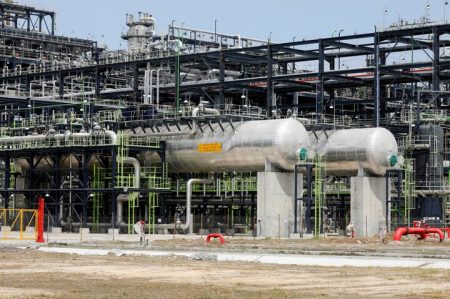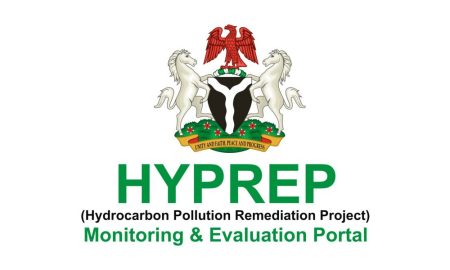*Demands efficient asset recovery from oil companies
Oscarline Onwuemenyi
18 September, 2011, Sweetcrude, ABUJA- The Civil Society watchdog in the nation’s extractive industry, Publish What You Pay (PWYP) has called on the Nigeria Deposit Insurance Corporation (NDIC) to explain to Nigerians what has become of the over N5 billion of public funds lodged in about eleven of the liquidated commercial banks.
It has also asked the Federal government to improve its assets recovery systems in the exploitation and sale of crude by oil companies, which has resulted in over N668.12 billion loss to the nation over the past 10 years.
The National Coordinator of PWYP in Nigeria, Ms. Faith Nwadishi, who raised these positions during a visit to the offices of the Nigeria Extractive Industry Transpareny Initiative, NEITI, in Abuja, further noted that the attitude of government Ministries Departments and Agencies (MDAs) to winning the war against corruption is abysmal, which is substantiated by the unending corruption in the oil, gas and the banking sectors exposed in the NEITI audit reports of 1999-2004.
PWYP expressed concern over the “attitude of the Nigeria Deposit Insurance Corporation towards the liquidation and merger of 11 commercial banks, which collected petroleum profit tax from oil companies and have refused to remit such fund to the CBN, and the role of the NDIC as liquidator to failed Nigeria commercial banks, to have liquidated these said banks without a reflection of trapped funds paid to the CBN.
“These discrepancies became obvious with the release of the NEITI audit report of 1999-2004, where it was captured that 11 commercial banks have trapped over N5 billion naira public funds from the Extractive Industry (EI),” it stated.
According to PWYP, “To withhold public funds unconstitutionally is a crime and against human rights. To further, trade with such funds and declare profit on it, transgress the money laundering act.
“We use this medium to re-emphasise our call on the NDIC to explain to Nigerians how the revenues from oil and gas reported to be trapped in these failed banks were liquidated.
The group also condemned the current inefficient practice of governments towards the effective management and utilization of Nigeria revenue flow which tilts towards empowering a few people and companies against the majority of Nigerians in the lower class.
“We argue therefore, that instead of removal of subsidies on petroleum products, the highly esteemed Nigeria Governors Forum should maybe ask why Nigeria is exporting so much crude oil with ease and in return gets underpayments of USD$553million (N8.295billion) by extractive companies, funds trapped in failed banks (N5billion), CBN excuses for non-reconciled figures, the N654.825billion withheld by NNPC since 2005 for lifting oil, and huge loses in the tune of $239million(N3.585billion).
“All these are reported in the NEITI audit reports of 1999-2004, 2005 and the 2006-2008. When put together Nigeria government is allowing a huge sum of N668.12billion to waste away in the hands of some few individuals and companies.”
It added that, “This amount comparatively is higher than what Nigeria government used in 2010 for debt services in both domestic and foreign debts burden as appropriated in the Nigeria appropriation budget of 2010. This is another paradox! What is the Nigerian government’s problem with asset recovery?”
PWYP charged President Goodluck Jonathan’s administration to “take seriously a remedial measures to address the fall outs of the NEITI audit reports from 1999 till date, publish the names of all contractors importing petroleum products to Nigeria, publish the audited account of the NNPC as submitted to the national assembly by the Auditor General of the Federation.
“President Jonathan should constitute an asset recovery committee (made up of government, private sector and civil society) to urgently make an enquiry into funds trapped illegally in oil and gas companies, NNPC and failed banks,” it added.
Nwadishi noted that, “Development experts have proved that many countries rich in natural resources like Nigeria exploit and squander revenues from natural resources to enrich a minority while corruption and mismanagement leave the majority impoverished.
“This high level of corruption is further exacerbated by the opacity that exists in payments and receipts of natural resource revenues by companies and governments respectively.”
According to her, “The Publish What You Pay believes in the principle of transparency and accountability which is very crucial to the advance of good governance in Nigeria.
“Governments around the world have in recent times supported the campaign and gone ahead to make policies that would make transparency and accountability in the extractive industry a part of their governments.”
Nwadishi pointed out that PWYP has been a very strategic partner of the Nigeria Extractive Industry Transparency Initiative (NEITI) since its inception and would continue to do so, adding that as a major stakeholder in the EITI value chain, there is need for periodic interactions between both agencies.
“In view of this, PWYP would like to support the work of NEITI beyond the validation to get some clarity on some of the issues as well as proffer possible solutions that can help move the country at large forward and free it from the resource curse it has been facing,” she stated.
She pointed out that the NEITI Act makes provision for the Initiative to send yearly reports to the National Assembly, noting that from interactions with members of the House no such reports have been sent to the legislature.
“We are here to find out how we can work together to move things forward; we would like to know what challenges NEITI is facing and how we can correct them before the September 30 deadline as prescribed by the Act,” she added.




